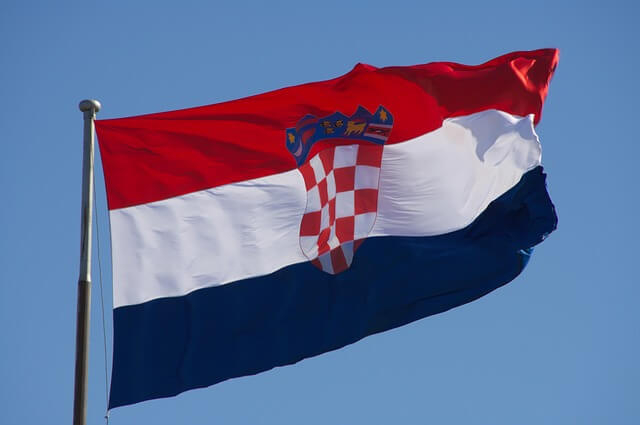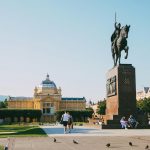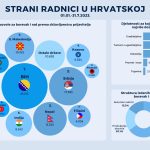Political misperception represents a common challenge globally. In an age where misinformation campaigns are rampant, the task of discerning fact from fiction is becoming evermore arduous and personal. Moreover, for the diaspora, the Croatian political establishment can present as a bit of a Blackbox. However, our votes matter, as does our political engagement. To make an informed decision about who should receive our support in the Sabor, clear information about each party and its objectives must be available to public members. In hopes of providing some clarity, I have created a summary of some of Croatia’s leading political parties, providing a brief description of each platform and prominent figures that you may recognize the next time you go to the polls.
Hrvatska Demokratska Zajednica
Hrvatska Demokratska Zajednica (HDZ), or the Croatian Democratic Union, is one of Croatia’s two major political parties and is the party of current Prime Minister Andrej Plenković and former President Kolinda Grabar-Kitarović. HDZ runs on a center-right platform, governing with an ideology of conservatism, Christian democracy, and pro-Europeanism. HDZ has been the leading government in Croatia for most of the period since independence. In coalition with several smaller parties, HDZ forms the current majority in the Sabor. The party has been in power since 2016 when it won on a policy platform that party members describe as being “devoid of extremes and populism.” As the party leader, Plenković has kept mainly to this moto, leading Croatia towards further European integration without creating much significant scandal since he came to power approximately five years ago.
Socijaldemokratska partija Hrvatske
The Social Democratic Party (SDP) is the major center-left movement in Croatia, serving as the primary opposition to HDZ. The party’s ideology is self-explanatory, but generally, the SDP aims to apply social democratic values to improve Croatian society, subscribing to liberal progressive and pro-European values. President Zoran Milanović is likely the party’s most well-recognized member in contemporary politics, serving as the Prime Minister from 2011-2016. The current party leader is Peđa Grbin, a lawyer from the coastal town of Pula. With 14 seats in the Sabor, SDP forms the official opposition in a coalition with various other parties on the same political spectrum.
Domovinski Pokret
Domovinski Pokret (DP), or Homeland Movement in English, is a right-wing populist party founded by musician turned politician Miroslav Škoro. The party runs on a platform of conservatism, nationalism, and soft Euroscepticism. A newcomer to Croatian politics, the party was founded in 2020 by Škoro after he left HDZ to take a farther right-wing stance. Škoro’s DP garnered 16 seats in the Sabor in the national election. However, the celebrity musician resigned from leadership in July of last year and has since been replaced by Ivan Penava as party president. Despite its novel status, it will be interesting to see how the DP performs going forward as the DP represents a growing populist trend in European politics.
Možemo!
Možemo! or “We Can!” in English is another political newcomer who debuted in the 2019 EU elections. The party subscribes to an ideology of left-wing green politics, Eco-socialism, and Progressivism, in many ways a counterbalance to the DP. Uniquely, there is no party president, instead opting for governance by collective leadership. Despite not winning any seats in the European parliament, Možemo! has been gaining ground at a pace that has turned heads amongst the Croatian liberal sphere, even attracting the support of American actor Jane Fonda. In the 2020 parliamentary election, Možemo! in coalition with other green-left parties, managed to attain 4 seats in the Sabor. However, their most impressive feat came in 2021 when the party managed to win 40% of the Zagreb local elections, allowing them to form a government within the city assembly.
Looking to the Future
While far from exhaustive, the list above provides a general idea of the political options available to voters in future elections. The beauty of democracy is that everyone gets a voice. In recent years, voter turnout has been low, standing at only 46.44% in Croatia’s most recent parliamentary election. While there are likely many reasons for this mediocre figure, public disillusion with their political leaders cannot be ignored as a likely contributing factor. By outlining just a handful of the choices available to voters, I hope that I have demonstrated that Croatian politicians are as diverse as their electorate.
For more on politics in Croatia, follow TCN’s dedicated page.









